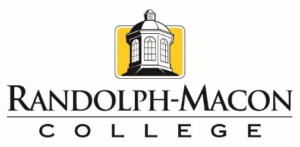A Good Idea Which Is Spreading
 A recent announcement from the Virginia Community College System provides a nice enhancement to an earlier Bacon’s Rebellion story about the smooth transition VCCS students can make to certain Virginia public universities. A new articulation agreement has been signed with private Randolph-Macon College in Ashland.
A recent announcement from the Virginia Community College System provides a nice enhancement to an earlier Bacon’s Rebellion story about the smooth transition VCCS students can make to certain Virginia public universities. A new articulation agreement has been signed with private Randolph-Macon College in Ashland.
The new agreement covers transfers from any of the state’s community colleges and “expands on an existing transfer program between R-MC and (J. Sargeant) Reynolds Community College, which already has facilitated transfers for more than 200 students over the past two years,” to quote the news release.
Not long ago there was a major cost difference between private schools such as Randolph-Macon and public universities. Public-school price hikes have narrowed any gap and the private schools often have far more scholarship funds or work-study opportunities available. Spending your first two years at a community college is still a substantial cost savings wherever you choose to finish.
“R-MC academic scholarships range from $14,000 to $21, 000, depending on the student’s GPA. All students are automatically considered for academic scholarships once they are granted admission to R-MC, and no separate scholarship application is required. In addition, (Guaranteed Admission Agreement) students who earned their Associate Degrees at a VCCS school will be eligible for a two-year College Transfer Grant from a program administered by the State Council of Higher Education for Virginia.”
This is a testament to the recognition throughout the higher education establishment that affordability is everybody’s problem, which of course requires recognition there is a problem at all. It also indicates community colleges are providing a good educational outcome for students willing to do the work, which is always the essential ingredient.
Taxing Any Layman’s Ability to Understand
The State Corporation Commission is being asked to rule on yet another argument over recent federal corporation income tax reductions and how they should be reflected on utility bills. Effective January 1, 2018, the tax rate dropped from 35 to 21 percent and the SCC quickly issued a directive to all public service companies that the benefits should pass directly to customers as soon as possible.
In a ruling earlier this year the SCC denied a Dominion Energy Virginia request to continue using the old, higher tax rate in calculating future bills for transmission costs.
The accounting behind that transmission issue was easier to explain than this latest issue, which centers on another of those specific rate riders which show up on your bill to pay for a specific purpose. In this case the argument involves Rider W, for the Warren County gas combined-cycle generator, but the same question will crop up in all the other riders in effect during the change in the tax rates. The decision on Rider W will be the precedent for all.
That charge on your bill is intended to collect the total lifetime cost of those individual projects, construction cost, operating cost, profit on capital, depreciation and taxes. As the plant opened, a projection was made for how much to charge customers annually to cover all that, and it adjusted annually. The adjustment looks back and includes an element of true-up, adding or subtracting a bit based on the actual experience of the prior year.
The argument at hand involves how to look at taxes which were accrued but deferred during the higher-rate period and paid later at the lower rate. When I hit a phrase like “amortization of the deferral balance related excess deferred income taxes (“EDIT”) over the Projected Factor Rate Year” in written testimony, I’m going to step back and let the experts have it out. For Rider W the dispute involves less than $3 million of the tax bill, and the total amount across all the various riders is not reported. Forward-looking charges will reflect the lower 21 percent tax rate.
Two points, however:
- Those folks down at the utility will not walk past one nickel on the sidewalk if they can help it. They may have found a creative way to earn excess profits in a rider, which is supposed to be immune to excess profits. We need the SCC to be just as vigilant over small sums as large.
- Should the General Assembly drop the ball on state tax policy adjustments to the new federal taxing regime, this process is going to work in the opposite direction at the state level. Dominion’s Virginia corporation income tax will grow, substantially, and every dollar will pass on to customers, not stockholders. Every dollar.


